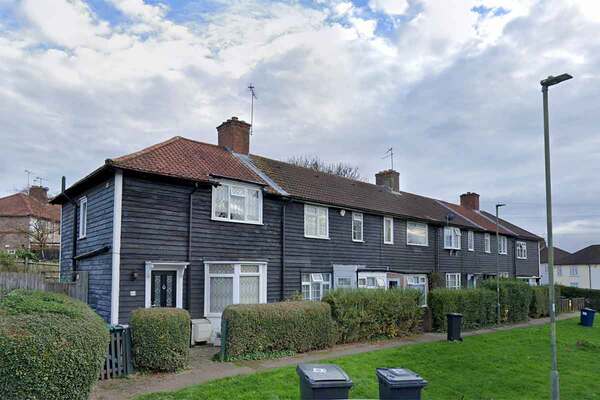You are viewing 1 of your 1 free articles
Charity Commission investigates exempt provider as auditor raises ‘serious financial management issues’
The Charity Commission is looking into the compliance of an exempt accommodation provider in Birmingham over potential financial and governance issues at the association, Inside Housing can reveal.
The charities’ regulator confirmed that it was carrying out a regulatory compliance case looking into Birmingham-based exempt accommodation provider New Roots and were looking at financial and governance matters at the charity.
A regulatory compliance case is raised by the commission when it identifies concerns and wants to address potential failures and weaknesses in a charity’s management. It is a step down from a statutory inquiry which is used to investigate potential serious regulatory concerns and misconduct at a charity.
Confirmation of the investigation comes after Inside Housing contacted the regulator after seeing the accounts of the provider which manages nearly 2,000 homes in Birmingham.
The accounts, which included a “forensic” investigation into the finances of the landlord, detailed what it described as “serious financial management issues” over a period of time at the provider.
In total, the auditor raised 12 key issues, including questions of alleged unpaid tax contributions and an overpayment of housing benefit to managing agents it used.
The audit report from Cooper Parry came after a newly appointed board requested an independent forensic investigation into the finances of the association, which the new board claims points to a number of practices that were “not in keeping with the normal course of business”. This saw them replace their existing accountants of 14 years, Four Oaks Taxation and Accounting Services, and replace them with Cooper Parry, who produced the audit report on the back of information provided to them during the forensic investigation.
Cooper Parry Group, which was commissioned in March 2020, qualified the accounts, a mechanism used when accountants have concerns and reservations about the finances of a charity.
Number of issues
As part of the audit, which covered the year to 31 August 2019, Cooper Parry reported a number of issues at the association including unpaid taxes stretching more than a decade and a “complete lack of internal controls surrounding the identification, declaration and recording of related party transactions”.
As part of the audit, Trident Tax, a tax specialist company, was commissioned to look at New Roots’ tax contributions and how much it might owe to HMRC. It came after the association’s Board of Trustees reported unpaid PAYE and National Insurance contributions to HMRC as a result of untaxed cash wage payments and company benefits to employees, stretching over the 14 years.
The specialist estimated that in those circumstances the settlement for non-payment to HMRC, including penalties, could be as much as £205,000. In some cases, Cooper Parry said no audit trail in relation to the employment of some staff members, including no personnel files, contracts of employment or DBS checks where required. New Roots confirmed that a financial settlement had now been agreed with HMRC.
Cooper Parry also raised issues with related party transactions that had taken place between the association and linked companies, saying it had identified issues with the identification, declaration and recording of these transactions.
The transactions recorded in the accounts show payments to companies owned by management staff as well as family members.
This includes the purchase of a motorhome from the former spouse of Janine Phillips. Ms Phillips was the managing director of New Roots since1996, before leaving last year. The motor home was bought at a cost of £36,500. This was then sold privately after the financial year up to 31 August 2019 at a loss of £7,723.
Cooper Parry identified a “complete lack of internal controls, surrounding the identification, declaration and recording of related party transactions”
Other related party transactions listed in Cooper Parry’s audit show the company paying tens of thousands of pounds to a long-arm landlord, or managing agents, and consultancy companies owned by members of New Roots’ senior staff or family members.
In one case the audit indicates that New Roots received commissioned income of £42,099 in relation to the long arm properties managed by long-arm landlord Brightside Housing, which lists Ms Phillips’ son Laurence Mone as the sole director. This was on top of a recorded £62,000 in debtor balances, which the audit indicated included sums part of which were for expenses previously incurred on behalf of Brightside.
In another example, the audit said the company paid more than £31,000 over two years in relation to consultancy services provided by Little Red Solutions. Little Red Solutions is the trading name of Alex Keane, daughter of Janine Phillips, according to the accounts.
Investigation by RSH
An investigation by the Regulator of Social Housing (RSH), separate to that of the Charity Commission regulatory compliance case, was also carried out and resulted in the association being downgraded to a G3/V3 non-compliant rating in February 2020.
This came after the RSH discovered “inherent conflicts of interest relating to former board members and employees of New Roots”, and concluded that it was unable to provide compelling evidence that appropriate probity policies and arrangements were in place to effectively manage these conflicts.
The regulator also found a “lack of assurance over probity arrangements and relationships with third-party contractors”.
As a provider of social housing and a registered charity, New Roots is regulated by the Charity Commission and the RSH.
It is one of several exempt accommodation providers that has been censured by the RSH in the past 18 months, with several others being investigated or in some cases downgraded.
Exempt accommodation is a sub-set of supported housing that is funded directly by the Department for Work and Pensions. Due to landlords providing loosely defined care and support services, their tenants can be exempt from housing benefit caps and associations can charge much higher rents when compared with normal landlords.
The regulator also found a “lack of assurance over probity arrangements and relationships with third-party contractors”
It is often used as a means of housing those with very few other housing options, such as prison leavers, rough sleepers, refugees and migrants, and those experiencing substance abuse issues.
In many cases registered providers, like New Roots, employ managing agents or long-arm landlords to provide the accommodation and support services, by entering into short-term lease arrangements with these companies. These agents are then paid a large percentage of the housing benefit for a property and take a percentage for themselves, in the case of New Roots’ 15%.
In its report, Cooper Parry found that there was no resident management system in place to monitor payments to managing agents which had lease deals with New Roots and, according to the report, in 2018/19, it had incorrectly paid out more than £1.4m in housing benefit to managing agents.
This was housing benefit received from Birmingham City Council and then paid out to managing agents that should not have received the cash. The accounts said that some of these payments had now been recovered, but “significant balances remained outstanding”. There is no evidence that any of these overpayments were paid to managing agents listed in the related party transactions.
Cooper Parry also put a disclaimer of its opinion on the accounts due to difficulties obtaining all the sufficient audit evidence needed, due to trustees and management not being able to provide the supporting information and documentation the auditor requested.
New Roots has provided housing and supported care, particularly for young homeless people, in Birmingham for 22 years. In 2018 it received more than £12m in housing benefits, on top of £6m in 2017.
However, at the start of 2020 it underwent a serious management reshuffle, with a number of key management personnel leaving the company. This included Ms Phillips, the chief executive of the organisation, Samuel Phillips, operations manager and Ms Phillips’ son, and Laurence Mone, business manager and Ms Phillips’ son. All three left the organisation in the early part of last year. These were replaced by a new management team, including a new chief executive, and a new board.
In the trustees’ report, it says that the rules around housing benefit may change and any of these changes in the short and medium term could put the future of New Roots at risk. It added that a failure to secure accredited improvement in moving away from relying on exempt provision could lead to New Roots facing an “existential risk”.
The trustees’ comments on the accounts say that the group is now looking to develop new services that will see it move away from its reliance on the exempt accommodation model. It added that it was implementing new lease and management agreements across the organisation and a review of its managing agents, and was carrying out a review of its agents to ensure it was working with those committed to the highest standards. It also said that it has committed to transparency and openness and is working closely with the regulator and Birmingham City Council.
New management
A statement from the new management team at New Roots said: “The board of trustees of New Roots endorse these accounts as a fair record of a charity and company that had been fundamentally mismanaged.
“The current board and a newly installed senior management team are committed to continue to work with both the Regulator of Social Housing and Birmingham City Council to tackle the issues associated with exempt accommodation in the city.
“While the current board and management of New Roots are enthusiastic supporters of Birmingham’s work to refocus exempt housing, and its work in the new exempt housing pilot programme, it is not yet clear of the ongoing need and demand for provision in the city.
“The work of New Roots in 2021 will be aimed at transforming the nature and scale of our operation so that it offers a safe and effective service to those looking to commission services to support homeless and vulnerable adults”
“The work of New Roots in 2021 will be aimed at transforming the nature and scale of our operation so that it offers a safe and effective service to those looking to commission services to support homeless and vulnerable adults.
“As a charity, the board of New Roots is committed to exploring ways in which greater support — and opportunity — can be provided to service users to support the move to independent living. The company will continue to explore service development both within the exempt framework and beyond it, to include move-on housing and other specialist support services.”
A spokesperson for the Regulator of Social Housing said: “Our regulatory judgement on New Roots concluded that it did not meet the governance and viability standards. We expect New Roots to address the range of issues we described in our regulatory judgement, and are continuing to work closely with them and all relevant stakeholders.”
Inside Housing has contacted Samuel Phillips, Laurence Mone and Alex Keane. Janine Phillips is now deceased. Inside Housing has contacted Four Oaks.
UPDATE: at 11.02am, 01/04/21 This article has been amended to reflect the fact that it was New Roots’ board of trustees that self-declared its liabilities to HMRC, not the accountants as previously reported.
Sign up for our legal and regulation newsletter
Already have an account? Click here to manage your newsletters










